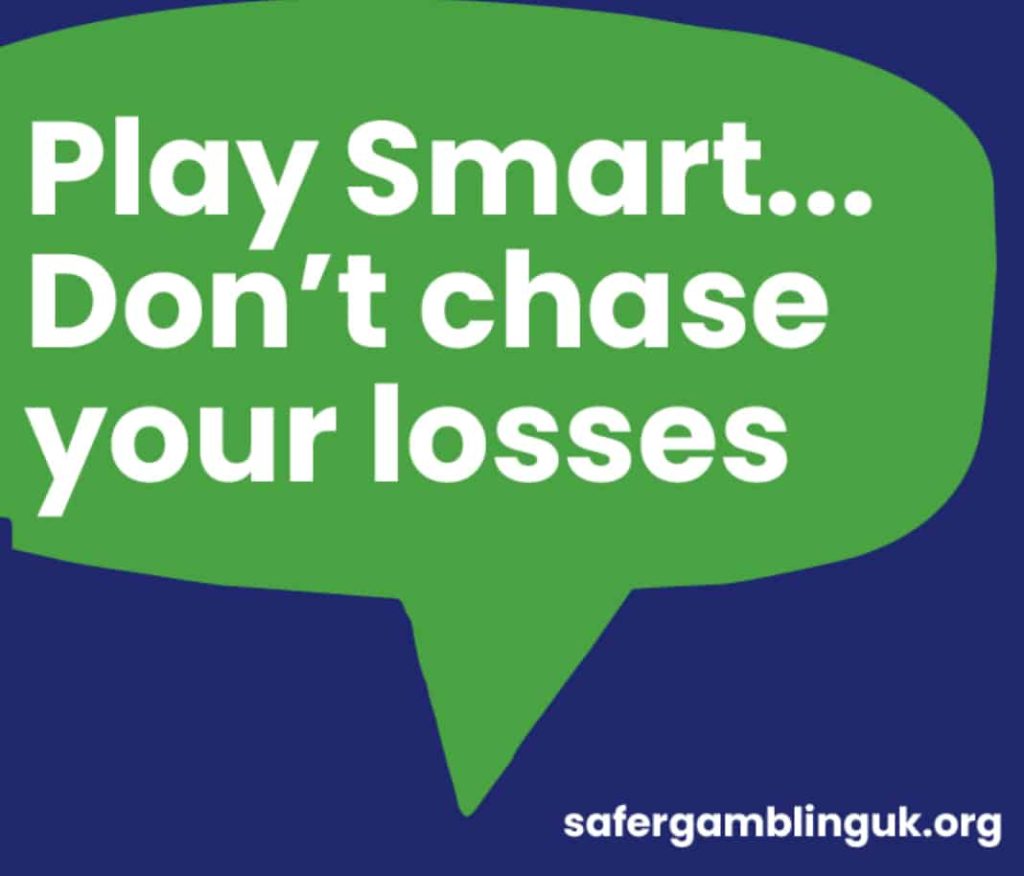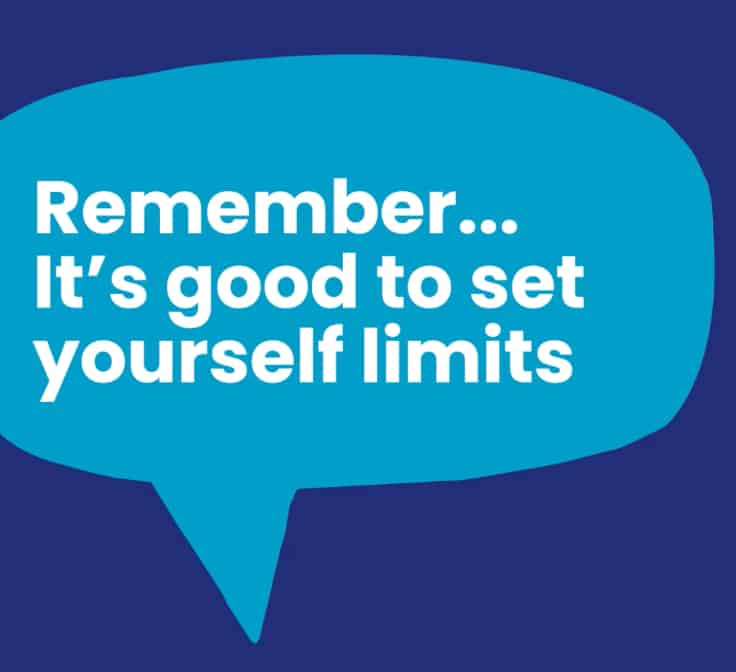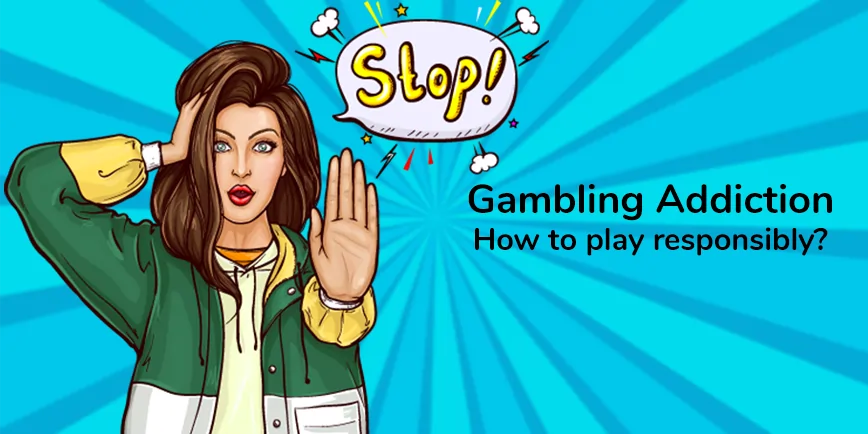Casino responsible gaming is when you adopt a responsible gambling attitude and where you treat playing as a gaming hobby while understanding the risks and rewards. A gambling disorder can happen to anyone from any walk of life. Gambling behaviour starts off as a fun or harmless past time but left unchecked it can escalate into an unhealthy fixation.
Problem gamblers display some common addictive behaviour that may include an overriding preoccupation, inability to stop, withdrawal, deception, restlessness or irritability, financial difficulties, denial, stealing money to gamble and dependence for fun.
- 1 What is gambling addiction?
- 2 How to determine your level of compulsive gambling?
- 3 Things to remember about compulsive gambling
- 4 Top 5 tips to prevent gambling addiction
- 5 How to set limits in a mobile casino?
- 6 How does self-exclusion work in an online casino?
- 7 What are the organisations that help compulsive gamblers?
- 8 Latest news about responsible gaming and gambling addiction
What is gambling addiction?
A gambling addiction is a mental health illness where a player becomes preoccupied with the fantasy of winning. This needs overrides other basic needs like the need to pay bills, nurture relationships, perform at work/school or other responsibilities. Problem gamblers display many common symptoms such as relationship issues, depression, secretiveness, borrowing money, chasing losses and other.
There may be a number of reasons for problem gambling which can include a need for an adrenaline rush, the social aspect, the need for a challenge, escapism of some other personal issues or financial desperation. There are ways of getting help, some of which include gamblers anonymous, support groups, family and friends and a national gambling helpline.
How to determine your level of compulsive gambling?
There are two common methods of testing for compulsive gambling. They include the DSM-IV Pathological Gambling Diagnostic Form and the Canadian Problem Gambling Index (CPGI).
The Canadian Problem Gambling Index (CPGI)
The Canadian Problem Gambling Index (CPGI) was launched in 2001 by the Canada Consortium for Gambling Research (CCGR). It was originally used to measure the scale of problem gamblers in Canada, Australia, Iceland, Norway and Great Britain. It consists of nine questions, some of which originate from the DSM-IV Pathological Gambling Diagnostic log with South Oaks Gambling Screen (SOGS).
In this test we must assign a number rating from 0 to 3 as follows:
- 0 = Never
- 1 = Sometimes
- 2 = Most of the time
- 3 = Almost always
We first need to answer these 9 questions honestly, with a rating of 0-3:
Sure, here is the table with the questions formatted:
| Question |
|---|
| Have you bet more than you could really afford to lose? |
| Have you needed to gamble with larger amounts of money to get the same feeling of excitement? |
| Have you gone back another day to try and win back the money you lost? |
| Have you borrowed money or sold anything to get money to gamble? |
| Have you felt that you might have a problem with gambling? |
| Have you felt that gambling has caused you health problems, including stress and anxiety? |
| Have people criticized your betting or told you that you have a gambling problem, whether or not you thought it was true? |
| Have you felt that your gambling has caused financial problems for you or your household? |
| Have you felt guilty about the way you gamble or what happens when you gamble? |
Once we’ve finished answering the questions then, we add the rating we gave to each question to get an overall score which can be interpreted as follows:
- Total 1-4 = Low risk
- Total 5-7 = Moderate risk
- Total 8-27 = Problem gambler
Things to remember about compulsive gambling
- pathological gambling is most likely the result of a mental health problem, drug addiction or other disorder
- gambling addiction signs include chasing losses, borrowing money, withdrawal from friends and family, criminal activities, attempted suicide or thoughts of suicide and more
- we can take tests such as the DSM-IV Pathological Gambling Diagnostic Form or the Canadian Problem Gambling Index (CPGI) to measure our risk of addiction
- there are treatment options available that can help us to change the way we think called cognitive behavioural therapy (CBT)
- remember to adopt a responsible casino gambling attitude to limit the risk of addiction
- besides therapy CBT, compulsive gamblers can also seek gambling addiction treatment from entities like gamblers anonymous or friends and family
Top 5 tips to prevent gambling addiction
- Use deposit, win/loss and playing time limits
- never chase losses and never bet more than we can afford to lose – avoid credit cards!
- always be prepared to walk away
- avoid gambling when suffering from substance abuse, depression or other mental health issues
- Treat gambling as a fun hobby and not as a means of financial problem solving, escapism, socialising or getting an adrenaline high

How to set limits in a mobile casino?

There are a number of ways for UK casino players from to set limits when playing at online casinos. Remember that casino responsible gambling means playing for fun with money you can afford to lose and knowing when to stop.
This means you should be careful to impose limits on both time and money when you play online casino games, to enjoy them to the full!
Deposit limits
Players should set a maximum amount to deposit and stick to it based on how much they can afford to lose. Some deposit methods are more restrictive on the maximum deposit amount. Casino players should avoid borrowing from credit cards when depositing to online casinos and only play with money they have. Only use credit cards for convenience.
Game limits
Many of the newer online casino games including slots and table games allow us to set loss limits on the amount of money that we are prepared to lose as well as to lock in profits when they exceed a certain threshold. We should decide how much we are prepared to lose and when is the right time to lock in some profits. Sometimes things won’t go our way and those are the best times to cool off.
Time limits
Another thing that we’ll want to limit when playing at a mobile casino is sometimes forgotten and that is a players’ time. Always control the amount of time spent in a day, week or month. Taking breaks from playing is good for our mental health.
Read our simple guide to responsible gambling, how it works and get more practical advice.
How does self-exclusion work in an online casino?
It is possible to participate in a self exclusion list which is designed to prevent players from gambling for a minimum of six months. Participation comes at the request of the player, and the gambling operator will be required to close our account as well as remove our name and other details from marketing databases.
In Great Britain, all gambling companies that offer this service in licensed and regulated premises including betting shops, online gambling websites, land based casinos, live casino and other must participate in the multi operator self exclusion scheme. This means that a player need not apply to each operator individually. This multi operator self exclusion facility is called GAMSTOP.
Gamban is a way of taking control for a player that has a gambling addiction by installing software on their device which blocks access to online gambling sites. The software is designed for maximum compatibility on Windows, Mac, Android and iOS.
Betfilter is a way of taking control if a player is a gambling addict by installing software on their device which blocks access to online gambling sites. The software is designed for Windows, Mac, Android or iOS.
What are the organisations that help compulsive gamblers?
There are a number of support groups for successfully treating compulsive gambling which includes:
- Counselling and support at GamCare. Visit their website gamcare.org.uk for resources, live chat on Facebook messenger or Whatsapp, and find lvie chatrooms and forums.
- GamCare run the National gambling helpline 0808 8020 133 with personal gambling addiction treatment.
- There is also Gamblers Anonymous UK which offers a 12 step approach to recovery.
- 16+ players from England or Wales can refer themselves to a specialist NHS clinic to stop gambling.
Latest news about responsible gaming and gambling addiction
We follow the news and actions of the United Kingdom Gambling Commission to help protect children and vulnerable people from gambling addiction and direct players to the most reliable casinos.
- Responsible gambling tips: How to play at online casinos without going broke

Leave a Reply